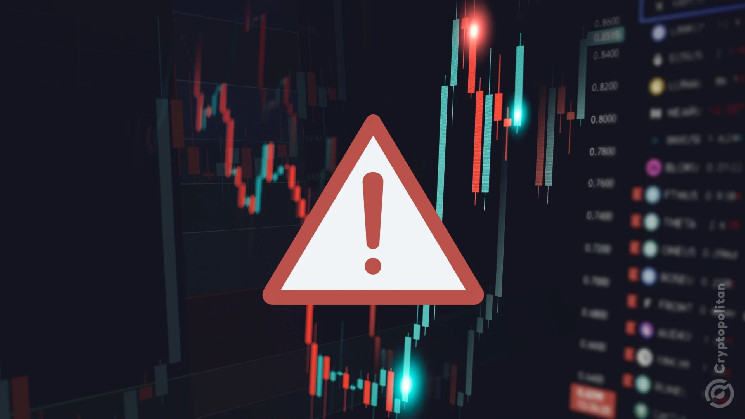Coinbase, the US’s largest cryptocurrency exchange, is currently facing a wave of user complaints regarding withdrawal issues and difficulties with other crypto transfer options. Users have reported being restricted from sending or moving their holdings.
The emerging situation has caused a bit of panic among Coinbase users and the crypto community on social media. However, the crypto exchange has taken a toll on such cases popping up while experts have suggested why such restrictions might have been inflicted.
Coinbase faces user backlash
An X user (@jamescrow) posted a screenshot that read “Crypto Sends Restricted.” It mentioned that no warning was sent out by Coinbase before the purchase.
Coinbase had replied to the issue raised by the user and asked him to send them a private message so that they can assist him in a better way.
@seanclarke911 can you please spread the word about this which @coinbase has implemented. No warning of this prior to purchase. Will be going to the authorities. pic.twitter.com/8UkxEl6Ixg
— JimmyCorvidae⚡ (@jamescrow) September 28, 2024
Another user (@rajatsonifnance) posted that “almost 18 hours on this Bitcoin withdrawal from Coinbase through lightning” and it is still pending.
The crypto exchange asked the user to share his Coinbase-associated email or transaction hash in order to check the details. It advised the user to not share the password or sensitive account details with anyone.
What’s behind the withdrawal limits?
Amid growing complaints, Crypto expert Adam Cochran in a post suggested that Coinbase does force such types of restrictions in multiple situations. First, if the exchange detects a potential account compromise that may indicate a breach then it will impose limitations to protect user funds. But it can also happen at the time of noticing a potential Know Your Customer (KYC) and Anti-Money Laundering (AML) violation.
He notes that while these measures seem annoying, legitimate accounts typically resolve these issues without difficulty. The expert highlighted that extended lockouts often occur when users repeatedly interact with flagged addresses on the blockchain.
Cochran informed that such issues can also arise when users make purchases with a credit card associated with a long chargeback period. They may face withdrawal limitations if they don’t have an established record of buying with that card on Coinbase.
There is another case where accounts that previously initiated chargebacks may encounter withdrawal cutbacks on new credit card purchases until the settlement date passes.
He added that one of the challenges surrounding KYC/AML policies is the inability to disclose the specific reasons for account restrictions in certain jurisdictions. This lack of transparency might lead users to frustration.
Read the full article here

